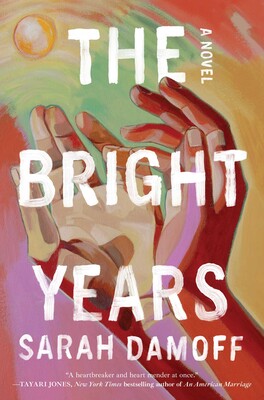He’s coloring a night sky on the underbelly of the kitchen table. His parents are too busy fighting to notice. It always starts with his father’s thirst. Next comes the television set. His mother turns up the volume so the antics of Wally and Beaver or Lucy and Ricky will drown out the yelling.
A pound cake sits on the oak table above him. The sugary smell teases the boy. He forced down his peas, but now he might not even get a slice. Behind his parents’ bedroom door, there’s a thump. What sounds like a loud clap. A crash. His mother, her voice muffled, says something about upsetting the landlord.
With a chunky white crayon, the boy adds a star to his sky. He bites his lip and narrows his eyes, neck craned upward to study his work. Now the challenge is how to make clouds show up. He decides to try purple over the black of night. Doesn’t work. He adds a faint white outline along the wood grain, tracing the purple. Better. He smiles proudly.
His mother’s navy pumps cross the yellow linoleum. He watches her apron swoosh and braces for his father to follow with his grass-stained socks and loudness. But the only sounds are his mother’s steps, cabinets opening and closing, and June Cleaver asking Wally where he’s going. The boy watches his mother’s busy calves. Then, suddenly, her red-streaked face appears. She grips the table above her head, squatting down into the shadow of the boy’s world. He holds his breath. He knows good and well that he shouldn’t be drawing on furniture, but the blank wood was pleading for color.
“Play a game with me, dear?” He frowns.
She touches his face softly with her thumb and whispers, “You know how silly your father is. He’s playing a little hide-and-seek game with the Oldsmobile key. Help me find it?”
“Hide-and-seek?”
“When we find it, we can take a drive.” His eyes widen. “With you driving?”
“Hey now.” She manages a playful smile. “I can drive.” With the offering of this smile—the corners of her lips raised, frown lines softened, a peek of teeth—the desire to protect awakens within the boy, the force of helpless love that children have for their mothers. So he emerges from his oak shelter. And even though he finds her game dull, he does not complain. After they’ve looked unsuccessfully inside every cabinet and drawer, the boy eyes the cake. His mother exhales and leans over the tile counter, her palms pressing hard into it, chin tucked into her neck. The boy’s eyes dart between mother and cake. Then she stands up straight, lifts her chin, smooths her apron, and says, “Okay.” He waits, mouth watering.
She says, “If we can’t take a drive, how about a little walk?”
His nose scrunches as he looks away from the cake and out the window. “It’s dark.”
She squats again, placing her hands on her son’s shoulders. Up close, she smells like Palmolive. Her skin under each eye is purple like his clouds. She’s his Palmolive sky.
She hesitates, but only for a second. “Walking will do. Go find the new coat we got from that yard sale.” She stands and moves something from a drawer into her handbag.
“But it isn’t cold.” The truth is that he doesn’t like his “new” coat. It smells like dog and cigarettes.
Down their dark hallway, the flush of a toilet. His mother whispers, “Shoes. Now.”
He glances at the hallway, the cake, his crayons on the linoleum, and, wiggling his shoes on, he follows his mother out the back door.
He needs help with his shoelaces, but she says to hurry and leads him through their neighbor’s side yard. Her apron is still around her waist, dotted with hot sauce and oil. A bush rustles. The boy shivers and realizes his mother was right—it is cold.
As they trudge a trail through wet grass, he chastises her. “You said don’t go in the Thompsons’ yard without their permission.”
“I have permission.”
The boy doesn’t think this is true.
Trying not to trip on his laces, he realizes his bladder is full. He reaches down to hold himself as they walk and walk. Even by moonlight, he can see a bruise on his mother’s face. It looks like a green-yellow flame. She chooses a path away from the road.
Eventually, her voice flat, she says, “Your father just needed—”
“I hate him.” This startles the child as much as it does his mother. He would never have dared to even think that at home, but there’s something about the still air. Something about the effort it takes to move deeper into the night, like moving into a swamp. He feels smaller, angrier, and much more afraid. Reckless. A fresh wildness growls low inside him. He’s young, but he’s old enough to have watched his father hurt his mother again and again.
She stops walking and sinks into tall grass and bluebonnet buds. She tucks thick hair behind her ear and says, “I don’t.” She’s looking past him, her eyes sweeping across their surroundings and back again.
“Huh?”
She sighs, her breath like milk and her eyes like water. “I love your father,” she says, “very much.” She takes a shaky breath. “But”—she reaches for her son’s small hands as muscles gather and tighten around her bottom lip—“I love you most, Ryan.”
As she begins to cry, he imagines that the dark clouds beneath her eyes are raining. His heart wobbles. He wets himself. He realizes they aren’t going home, not even for dry pants. He wonders what will happen to the cake. To his night sky. And to them.
__________________________________
Excerpted from The Bright Years by Sarah Damoff. Copyright 2025 © by Sarah Damoff. Reprinted by permission of Simon & Schuster, an Imprint of Simon & Schuster, LLC.













